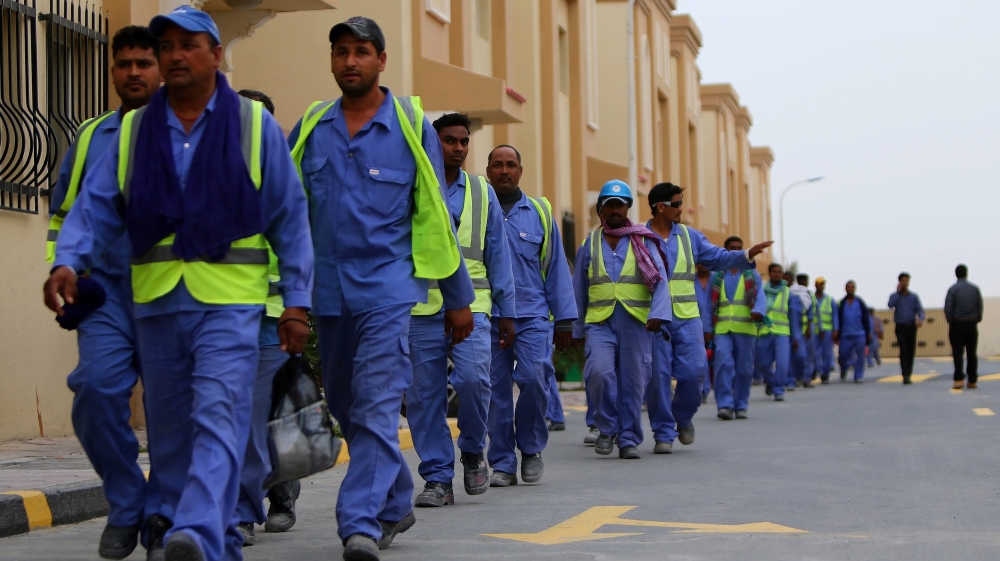Articles
Your one stop shop for all your health & safety resources
Key Steps to Developing a Culture of Care within Worker Accommodations

Worker accommodation standards in Qatar have been a considerable area of improvement over the last few years with much of this due to the high standards set as a result of the Worker Welfare Programs accelerated in view of the recent Football World Cup held within the country in November and December 2022. The Qatari government through government entities such as the Supreme Committee as well as the Ministry of Administrative Development, Labour and Social Affairs (MADLSA) had enhanced regulations aimed at improving the living conditions of workers.
As a result of a strong focus on worker welfare within the country, regulations on labor camps, aimed at improving the living conditions of workers are now actively enforced. For example, under these regulations, labor camps must have sufficient space for each worker, with a minimum of 6 square meters of living space per person. Each worker must have a bed, a locker for personal belongings, and access to basic amenities like running water and electricity. Accommodation areas must also have adequate facilities for cooking, washing, and sanitation.
In addition to these minimum requirements, government authorities have also introduced regulations aimed at improving the quality of accommodation provided by businesses within Qatar. Under these regulations, employers are required to provide workers with clean and well-maintained accommodation that meets certain standards for hygiene, safety, and comfort. Accommodation must be free from pests and vermin, and must have adequate ventilation, lighting, and temperature control.
To ensure that these regulations are enforced, MADLSA have set up an inspection regime to monitor compliance with the standards. Inspectors visit labor camps regularly to check that employers are meeting their obligations, and can impose fines or other penalties for non-compliance.
It is also essential that employers consider that compliance with such regulatory standards is the bare minimum, going above and beyond compliance will significantly benefit the workplace, the employees, and the company as a whole. Organizations that have gone above and beyond when it comes to prioritizing worker welfare requirements have seen significant improvements that have positively impacted their business as a whole. Such improvements have been seen in areas such as employee morale and productivity, reduced safety incidents and worker compensation claims, stronger brand reputation within the country, improved employee retention as well stronger long term financial benefits.
Numerous organizations within the country have achieved such results through developing a sustainable long term worker welfare approach. Much of the success has stemmed from a strong focus on building a culture of care within worker accommodations.
The following are a number of key approaches to building a beyond compliance approach to managing worker welfare within accommodations:
1. Firstly, Develop your own Internal Worker Welfare Accommodation Standard: Organisations should have a systematic approach to worker welfare and strategize such approaches. In Qatar for example, the ministry of Planning and Environment set a minimum standard requirement for worker accommodations. Couple this with key requirements within the Qatar Labour Law as well as the recommendations of the Ministry of Public Health (MOPH) to develop your approach to welfare within the accommodation.
2. Develop and Systematic method to inspections and monitoring: Worker accommodations are always going to be a work-in-progress and constant attention is required to ensure adequate follow up and close out of action.
3. Focus on building a culture of care: Develop programs such as worker welfare committees to discuss main concerns within accommodations, provide mental health focal points to identify worker who may require further support, inductions so that accommodation occupants are aware of their expectations when staying within such accommodations.
4. Conduct periodical surveys and assessments: An example of this, specifically for those accommodations where meals are provided, could assess food quality and its overall acceptance amongst the workers.
5. Periodical welfare campaigns to promote healthy habits. Many organizations in Qatar support such programs with incentives to ensure active participation.
6. Focus on Ethical recruitment and ensuring workers are fully aware of their rights. Provide direct lines of communication with organization leadership to report potential concerns.
7. Leadership participation and visits to accommodations to ensure that are fully aware of potential issues and are seen to address these with the employees.
While regulations represent a step forward in improving worker accommodation standards, there is still work to be done to ensure that all workers are living in safe and comfortable conditions. As authorities within the country continue to monitor compliance with the regulations, employers must play their part by providing workers with the right standard of care.
By working together, employers, and government organizations can help each create a more just and equitable society for all workers in Qatar.
Submit form
+ Training
+ Consulting
+ Support Services
+ Professional Development
Let us know which service you are interested in:
Please complete the form below and a member of our team will be in touch within 1-3 business days
Thank you for your interest in Demoura Lawson Consulting
Contact Us
Qatar: Unit Office No. 1905: 19th Floor, The E18hteen Tower , Bldg 230, Street 303, Zone 69, Lusail Marina , Qatar
Tel: +974 4445 9206
Saudi Arabia: 3121 Imam Abdullah Bin Saud Bin Abdulaziz Road, Ishbiliyah, Riyadh 13225, Saudi Arabia
Tel: +966 50 685 6910
ADD A COMMENT
April 27, 2023